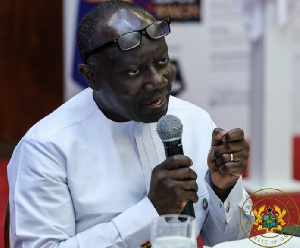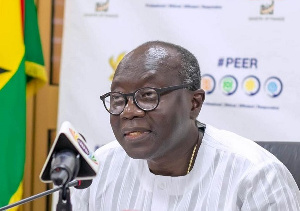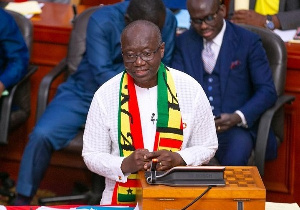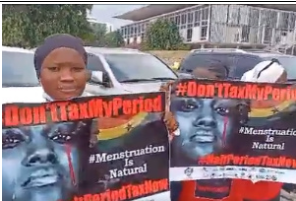Finance
FULL TEXT: Ofori-Atta’s update on Ghana’s IMF programme and growth agenda
Published
11 months agoon
By
admin
1. Good Afternoon, Ladies and Gentlemen of the Media as well as everyone joining us on the various social media platforms. I thank you sincerely for honouring our invitation to this Press Conference. Let me say HAPPY FATHER’S Day to all men and fathers for the guidance, hard work, and selflessness. May the unfailing grace of God empower us to fulfil our roles to our families and nation.
2. I just returned from the preliminary sessions of the AFREXIM Bank Annual General Meeting taking place in Accra; just a year after we hosted the African Development Bank’s Annual General Meeting. Truly, Ghana continues to enjoy global attention as an example of economic renaissance.
3. There have been significant developments since I went to Parliament in November, 2022, engaged you in December, 2022 and the approval of IMF facility. Subsequent to these, and the conclusion of the IMF Staff Mission last week, I will, today, share with you an update on the economy. More importantly, I will also discuss the details of the programme of work to return our economy to the path of strong sustainability and growth and provide more opportunities for our people.
Responding to a Challenging Year
4. Ladies and Gentlemen, Wednesday, 17th May 2023 is a day to be memorialized. On that day, Ghana secured approval for a US$3 billion 3-year Extended Credit Facility from the Board of the International Monetary Fund (IMF) to support the implementation of Ghana’s Post-COVID-19 Programme for Economic Growth (PC-PEG).
5. As was the case in many other Emerging Market Economies devastated by rising debt, worsening financing conditions, high inflation, deteriorating exchange rate and Balance of Payment (BOP) pressures, Ghana sought IMF assistance to support our PC-PEG. The implementation of the PC-PEG aims to restore macroeconomic stability and debt sustainability, and to support inclusive growth while protecting the vulnerable.
It is also aimed at building resilience and promote efficiency and competitiveness through wide-ranging and strong structural reforms in key sectors of the economy. We also sought to leverage the catalytic effect an IMF programme would offer in terms of accessing additional financing and building confidence.
6. Our decision to seek support was in the context that our envisioned path to rapid economic recovery, with a remarkable economic growth rate of 5.1% in 2021 against 0.5% in 2020, had suddenly been halted; requiring us to seek support to enable our people to safely cross the Jordan to the ‘Promised Land’.
7. Ladies and Gentlemen, between the announcement, engagements, agreement, approval and disbursement of the first tranche of US$604 million on Friday, 19th May 2023 under the ECF was a 10-month period (1st July, 2022- 19th May, 2023), a record timeline by all standards.
8. Many were surprised when I announced that we were on the cusp of a break-through agreement while presenting the 2023 Budget Statement on Thursday, 17th November 2022. I believed then that we were making remarkable progress towards securing an SLA. The pace of our progress had been underpinned by the unity of purpose by the Executive and the Ministry, shared focus, diligence, strong collaboration and, of course, the abiding and abundant grace of God.
9. This progress is anchored on the pursuit of planned but sacrificial interventions, including the Domestic Debt Exchange Programme (DDEP), to enable us effectively manage the rising cost of debt and create fiscal space for growth-enhancing reforms.
10. As a nation, we need to be proud of what May 17th signals, and what we have been able to achieve against all odds and in a turbulent global environment. Our $3 billion support is 3 times our quota, and the largest allocation from the Poverty Reduction and Growth Trust (PRGT), we front-loaded within 6 months $1.2 billion of the $3 billion facility, of which $604 billion was disbursed within 3 days of approval.
11. Let us also not forget the uncertainties of the G20 Common Framework for Debt Treatment and the role of the Paris Club and China’s agreement to Co-Chair the Official Creditor Committee (OCC), and with support from India, Saudi Arabia and Turkey to deliver financing assurances to the IMF Board on May 12th. For us in Ghana, we successfully navigated a difficult Domestic Debt Exchange Programme with steadfastness.
My gratitude to the individuals and banking, insurance and capital markets sector for their resolve, and the strong intercessory prayers by our Faith Based Organisations.
12. So “Fellow Ghanaians” as in Psalm 118: “Let us give thanks to the Lord for He is good.
For this is the Lord’s doing and it is indeed marvelous in our eyes’ 13.Also on behalf of H.E. President Akufo-Addo and the entire Government, I would like to express profound appreciation, once again, to:
i. our fellow Ghanaians, especially those who voluntarily and overwhelmingly participated in the DDEP, allowing us to achieve an 85% success rate by 14th February 2023, and sacrificing for economic recovery and reform of the Republic; ii. the Right Hon. Speaker and Hon. Members of Parliament for their support, especially in approving key revenue measures on 31st March, 2023 to enable us fulfil a key prior action relating to our programme with the IMF;
iii. our development partners, especially our bilateral partners for their financing assurances, delivered on Friday, 12th May, 2023, which was pivotal in securing IMF Board approval;
iv. you our friends in the media, who have kept our people well-informed of the process and sustained their hopes, despite the misinformation from certain quarters of our fraternity.
We are a resilient people, a people of destiny and we shall prevail in all things, because the Lord is on our side and the Battle is the Lords.
14. I would also like to express profound gratitude to the IMF Managing Director, Kristalina Georgieva, for her unwavering support and belief in our ambitious reform agenda, to Abebe Selassie and especially the IMF Mission Chief, Stephane Roudet and the Team for their tireless efforts and constructive dialogue with Government. My sincere thanks also go to the technical team at the Ministry of Finance and Bank of Ghana who worked so hard throughout the period.
Immediate Impact and Respite
15. Thanks to your support, partnership and forbearance in these key processes, coupled with the implementation of the front-loaded fiscal adjustments outlined in the 2023 Budget, as well as other government interventions, we are already seeing positive outcomes.
16. The United States, through the International Development Finance Corporation within 3 days of the Fund Approval announced a programme to invest US$300 million to establish the Ghana Data Centre under the G7 Partnership for Global Infrastructure and Investment (PGII). This is very significant as it illustrates the confidence that is being restored and the focus on a private sector growth agenda that we will be pursuing to transition our economy.
17. On the domestic front, as we speak today:
i. Inflation has decelerated to 42.2% for the month of May 2023, down from 54.1% at the end of December 2022. The May inflation represents a 1ppt increase in the April 2023 inflation of 41.2%. The May Inflation was largely driven by Food Inflation of 51.8% (up from 48.7% in April) with Non-Food Inflation decelerating to 34.6% from 35.4% in April.
The relative rise in inflation in May 2023 appears to reflect the pass through effect of the utility price adjustments in April and the implementation of the new tax handles in May. We expect inflation to decelerate going forward;
ii. the Cedi’s depreciation has largely stabilized with a year-to-date depreciation rate of about 21.9% (as at Friday 16th June 2023), down from 50% in December 2023;
iii. the 91-Day T-Bill rate has declined to 20.6%, down from 35.5% at the end of 2022; iv. Gross International Reserves has improved to US$5.7 billion (at the end of May 2023) after the disbursement of first tranche of US$604 million following the approval of the IMF Programme; v. The current account balance turned positive at 0.9% of GDP at the end March 2023 from -2.2% at end of December 2022. In addition, the trade balance improved from 0.9% of GDP at the end of January 2023 to 2.2% at the end of April 2023; and vi. Recent GDP statistics released by the Ghana Statistical Service (GSS) in April 2022 showed that growth ended 2022 at 3.1% which was higher than growth projections by most international organizations.
An Ambitious Agenda for Reform
18. Ladies and Gentlemen, let me state clearly that securing the IMF programme is not an end to our current challenges. Though it has significantly paved the way for the implementation of an ambitious and well thought out programme of reform for our economy and country.
In fact, the real work of adjustments, re-alignments and the return to a path of steady economic growth has just begun. Let us brace ourselves for the needed reforms, especially in expenditure control, non-arrears accumulation, revenue growth, ECG collections and Energy Sector reforms, in order to rebuild the walls of the Republic with urgency.
19. That said, our reform programme, the Post COVID-19 Programme for Economic Growth (PC-PEG), now supported by the 3-year Extended Credit Facility arrangement with the IMF, is built on clear targets and strong policy and structural measures.
20. Over the medium term, the PC-PEG backed IMF programme seeks to:
i. promote a credible fiscal consolidation programme, anchored by strong domestic revenue mobilisation and high spending efficiency. The Government is targeting a primary surplus on a commitment basis—the critical fiscal anchor under the program— of 1.5% of GDP by 2025 through to 2028;
ii. firmly anchor inflation expectations and preserve financial stability; iii. restore public debt to sustainable levels by 2028 by observing the two binding constraints of:
a. Public Debt (in present value terms) to GDP ratio of 55% or less; and
b. An External Debt Service to Revenue ratio of 18% or less.
iv. enhance economic competitiveness, with exports surpassing 37% of GDP in the medium-term;
v. Safeguarding Social Protection and enhancing targeting to ensure effectiveness of key interventions.
vi. Minimising Fiscal Risks, including from SOEs and deepening Structural Reforms in targeted sectors such as Energy and Cocoa.
21. It is important to stress that this structural reform agenda is consistent with Government’s own Public Financial Management Strategy, to transition from Central Government to General Government operations. This shift is critical as it facilitates clear oversight over key state institutions (MMDAs, SOEs- especially Cocobod and ECG, and others in the energy sector- and other quasi-State Institutions) whose operations have significant and direct fiscal impact on our economy.
22. To put it in perspective, about 25% of our assessed debt burden emanates from non-central Government operations, mainly from State Owned Enterprises (SOEs) such as COCOBOD and those in the Energy Sector. Our ability to institute better governance standards of these institutions to address their liabilities and promote their growth will be significantly improved, especially in this period of collective reform.
23. Crucially, we must all remain committed to the agreed wide-ranging and strong structural reforms designed to address structural weaknesses and build resilience in key areas including tax policy and tax administration, expenditure commitment control and arrears clearance, financial stability, financial sector plans, review of statutory funds, governance and corruption, debt management, fiscal credibility, and energy sector/cocoa sector SOEs reformation.
24. With legacy debt in the Energy Sector reaching about US$2 billion as at the end of May 2023, and an estimated shortfall of US$5.9 billion between 2023 and 2025, due to the current conditions of SOEs and IPPs in the value chain in the sector, the sector has been prioritised for comprehensive reforms. It is expected that structural reforms in the sector should reduce the shortfall by at least US$2.95 billion over the period.
25. These reforms, which are aimed at sustainably reducing losses in the energy sector, will be outlined in the updated Energy Sector Recovery Plan (ESRP), which will be approved by Cabinet by end June 2023. It will be accompanied by, amongst others, the: i. Operationalization of a framework to guide the granting of energy sector subsidies by end June 2023; ii. Implementation of an inter-utility debt settlement framework on a quarterly basis starting from June 2023; and iii. Implementation of a mechanism to enforce the guidelines of the Cash Waterfall Mechanism (CWM) and Natural Gas Clearinghouse (NGC) by end-June 2023.
26. Ladies and Gentlemen, similar reforms are envisaged under the PC-PEG to revamp the Cocoa Sector and reduce/eliminate the annual losses of Cocobod and its indebtedness. The reforms in the Cocoa sector include the implementation of a turn-around strategy, to be approved by Cabinet by end-June 2023. This is expected to address cocoa pricing issues, Cocobod oversight challenges, introduce cost rationalisation measures and a phase-out of quasi-fiscal spending.
27. Ladies and Gentlemen, other structural reforms to entrench fiscal discipline and bolster transparency include reforms to enhance revenue administration and tax policy, operationalization of the Human Resource Management Information System, enhancing spending controls and prevention of arrears build-up, and streamlining of earmarked funds. In addition, Government is transitioning from Central Government reporting to General Government, and from cash to accrual reporting.
Leveraging Additional Resources
28. Our commitment to these reforms is matched by our relentless pursuit of innovation and strengthened partnerships. Backed by the renewed drive for reforms, Government is working towards securing significant support from our multilateral partners.
29. Altogether, and including the IMF funds, World Bank and AfDB support, we expect multilateral support of about US$2.0 billion for 2023 and US$6.2 billion between 2023 and 2026. We expect the World Bank to provide a total support of US$1.6 billion whilst the AfDB provides a total support of US$200 million over the programme period.
In addition, we expect to mobilize catalytic funding of US$30 million in 2023 and US$330 million between 2023 and 2026 from bilateral creditors.
30. We are also collaborating with other Development Partners (including the World Bank and the AfDB) to finance the Ghana Financial Stability Fund to provide liquidity and solvency support for the financial sector as a result of the assessed impact of the DDEP.
31. Ladies and Gentlemen, be assured that while aggressively mobilising domestic revenue, we remain focussed on mobilising complementary sustainable external resources for our recovery and reform efforts to build the resilience that will promote shared prosperity for our people, while protecting and improving the lives of our more vulnerable population.
A special collaborative effort between Ministry of Finance, Ministry of Trade, Ministry of Agriculture and GIPC will be part of the programme on the thematic working group on Growth to attract significant Private capital.
Promoting Private Sector Led and Inclusive Growth
32. Ladies and Gentlemen, Government intends to invest these resources to advance macroeconomic stability and shared economic growth. Government is very intentional in ensuring that Growth and job creation are not sacrificed in the process of restoring macroeconomic stability and debt sustainability. Specific interventions to support the economic recovery process include:
i. Improving the business environment, reducing the cost of doing business and enhancing export competitiveness. In addition, local content legislations will be reviewed to encourage FDI while leveraging the opportunities offered by African Continental Free Trade Area (AfCFTA);
ii. Promoting entrepreneurship through initiatives such as the YouStart Programme (to create more jobs) with the Banking Sector and Faith Based Organizations (FBOs);
iii. Fast-tracking the implementation of key growth-oriented programmes under the Ghana CARES (Obaatan Pa) Program. These programs include the Economic Enclave Projects to enable self-sufficiency in rice, maize, vegetables, and poultry, and supporting large-scale agriculture and agribusinesses interventions through the Development Bank of Ghana;
iv. Transitioning to a digital economy to boost productivity, tax collection, and formality. Expanding digital government services and promotin the BoG’s digital currency will support digitalization and financial inclusion with adequate safeguards in place; and
v. Strengthening policies to support climate change adaptation and mitigattion for inclusive growth;
33. As you know, I was in South Korea and South Africa immediately after our IMF approval, to drum up private sector engagements in Agriculture and Technology in order to pursue a more deliberate and aggressive Growth Agenda. We will continue to engage the global community to support our programme for growth and economic turnaround.
34. We will be launching a Ghana Mutual Prosperity Dialogue agenda to encourage domestic and external investors to be at the core of our Growth Agenda. We will be working with Ghanaian businesses and entrepreneurs, think tanks and NGOs, and larger resident multinationals such as the Telcos, Mining and Oil companies to facilitate ease of doing and promoting business in Ghana.
Safeguarding Social Protection
35.In line with our tradition of compassion and care for the underprivileged, we expect to strengthen social protection through increases in social spending to protect the most vulnerable and the poor from the impact of adjustments under the Programme.
Recall that the 2023 Budget already made specific provisions for: i. doubling the LEAP payment per beneficiary household from GH¢45 per month to GH¢90 with progressive increase in the number of beneficiary households from the current 344,185 households.
Coverage will be expanded to all 2.5 million extremely poor individuals by 2024. We plan that by end September, 2023 an indexation mechanism will be introduced in the LEAP Programme to prevent erosion of value over time;
ii. Increasing the budgetary allocation for the School Feeding Programme to compensate for higher cost of meals and also to ensure a more efficient management of the programme;
iii. increasing the Capitation Grant over time as part of measures to improve foundational learning; and iv. ensuring prompt payment of the NHIS from the Consolidated Fund. There will also be a review of the package of benefits and tariff structure for the Scheme.
Towards a Sustained Partnership
36. Ladies and Gentlemen, it must be clear that there is enormous work ahead. To sustain and optimise this partnership with the IMF, Ghana proposed and negotiated six (6) Quantitative Performance Criteria, nine (9) Structural Benchmarks, and three (3) Indicative targets.
Specifically, these performance indicators have been carefully selected to enable us to achieve our reform objectives as well as build resilience to better withstand future global and domestic shocks, as they are certain to occur.
37. We would like to emphasize that, contrary to other commentaries, these performance indicators emanate from our Cabinet approved PC-PEG.
38. To support the effective implementation of reforms and interventions of the IMF backed PC-PEG Programme, Government has put in place a clear implementation strategy. This strategy includes:
i. Sensitisation of key stakeholders including Cabinet, EMT, Council of State, Parliament, National House of Chiefs, Organised Labour, Employers Associations (including AGI & Chamber of Commerce), MDAs, MMDAs, Investors, CSOs and Think-Tanks, FBOs, the General Public, NDPC Commissioners, Heads of SOEs, Development Partners, and the Media. We have already engaged Cabinet, EMT, Southern Sector Regional Ministers and MCEs, organized by the Ministry of Agriculture, Council of State, Chief Directors and Heads of Covered Entities, PPME Directors in MDAs, MoF Staff, and a cross-section of the Media. Today, the General public has accordingly been apprised. The rest will follow shortly.
ii. Implementing a comprehensive communication strategy for the PC-PEG Programme;
iii. Ensuring that Public Funds and their usage, including the IMF Funds, are audited by the Auditor-General of Ghana;
39. Programme implementation will be monitored on a monthly basis at various levels including Cabinet, Economic Management Team, and the Economic Policy Coordinating Committee or EPCC.
40. Additionally, we are introducting six (6) Thematic Working Groups (TWG) which will meet weekly and will be chaired by the Minister of State and Deputy Ministers of the Ministry of Finance, Deputy Ministers of other relevant ministries, and Deputy Governors of the Bank of Ghana. In fact, specifically, the following TWGs have been established:
i. Energy Sector SOEs/Cocobod Structural Reforms; ii. Public Financial Management Structural Reforms; iii. Financial Sector Structural Reforms; iv. Tax Policy and Revenue Administration Structural Reforms; v. Macro-Fiscal Policy/Reforms; and vi. Growth and Social Protection.
41. Ladies and Gentlemen, on this path towards a reformed, diversified and resilient economy, we stand ready to engage and receive inputs from all stakeholders, to implement the IMF-backed PC-PEG Programme. Accordingly, civil society, think-thanks, organised labour, FBOs, and private sector actors will be engaged in our policy dialogue towards effective implementation of the Programme.
Completing the Debt Restructuring
42. Despite the considerable progress, there remain key outstanding operations, especially in debt restructuring. We are at advanced stages of completing the debt exchange programme in relation to the cocoa bills and the US$ denominated local bonds. We have also rolled-out a programme to engage Independent Power Producers (IPPs).
Consistent with the MOU signed with Organised Labour in December 2022 on the exemption of pension Funds, they continue to be exempted. Government is currently engaging Organised Labour and Pension Fund Corporate Trustees, in line with the MOU, to explore mutually beneficial options within debt sustainability limits and to promote macroeconomic stability and economic recovery in the spirit of social partnership.
43. We have also successfully worked with the Paris Club (PC) and other creditors to determine the parameters of our official debt restructuring under the G20 Common Framework for Debt treatment. In the coming weeks, we will seek to complete the MOU with the OCC on the terms of bilateral debt treatment. Government will sustain engagements with private creditors on external debt to reach agreement with the private creditors in the shortest possible time.
44. In light of the above, we will count on all stakeholders, especially the media, to be circumspect on their reportage on the economy, to avoid derailing the progress being made.
Our love of country must supersede all and as the late P.A.V Ansah, a University of Ghana communications school professor, said “Journalism 101 teaches media students that they have three basic roles: to inform, educate and entertain.
However, for developing countries there is a fourth: foster national cohesion. National cohesion is the foundation upon which Any and Everything else is built.
45. Ansah had journalists in mind when attaching his addendum to the classical text. But as we watch events unfold in Mali, Burkina Faso, Nigeria and elsewhere in our region, this is, in fact, a role that holds true for Everyone.
46. The misreporting on China was unnecessary and unfortunate. Unfounded accusations against Government Officials leading the recovery are untenable and serve no useful purpose. Undoubtedly, the need for accuracy must override speed in these circumstances.
Conclusion
47. Ladies and Gentlemen, we are certainly at the beginning of a promising journey towards not just recovery, but also resetting our economy. As a number of you have said to me, we have turned the corner.
48. Government is committed to restoring Ghana’s economic fortunes within the shortest possible time through a combination of front-loaded fiscal adjustment and structural reforms while creating the conditions for private sector-led growth.
49. Going forward, we will continue to count on the support of all Ghanaians, including the general public, to achieve the objectives set out in the IMF-backed PC-PEG. We engaged the IMF Technical Mission last week (8th to 15th June, 2023) to discuss recent economic developments and the implementation of the IMF-supported PC-PEG. In this regard, we undertook a joint assessment of Ghana’s preparedness for the 1st Review of the Programme scheduled for September, 2023. This will pave the way for the IMF Board to consider and approve the 1 st Review and the disbursement of the second tranche of US$ 600 million in November, 2023. As the IMF attested to in their Press Release on 15th June, 2023, “Against a complex global economic backdrop, the Ghanaian economy is showing signs of stabilisation, with softening inflation, an increase in international reserves, and less volatile exchange rate”.
50. As a people, we must continue to be inspired by the momentum that propelled us to secure support in near-record time to implement the PC-PEG. We have a history of accomplishments in these situations. In 2017, we re-negotiated a derailed IMF programme, imposed stringent conditions on ourselves and collectively achieved them ahead of schedule.
51. From a macro-fiscal standpoint, the results were remarkable. Between the period 2017- 2019,
i. Economic growth double; with an average of 7% annually; ii. Inflation coming down to single digits (7.9% in 2019 from 15.4% in 2016); iii. The fiscal deficit, which was about 6.5% was brought down to 5%; and iv. Exchange rate depreciation reduced significantly to under 5% in 2017, averaging 8.7% between 2017 and 2019.
52. Alongside these achievements, we made significant investments in education, health, infrastructure and revitalized the financial sector to promote private sector entrepreneurship. We re-emerged as a bright Star on the regional and global stage, prior to the Pandemic.
53. Ladies and Gentlemen, we are being called upon to do this again and surpass this stellar performance. We must push past these ‘dark clouds’ that suddenly gathered and reclaim our manifest destiny. We must resolve and resort to our collective inner strength and overcome this new challenge for our country.
54. We must do this, inspired by assurance that the Good Book provides in Joel 2:25, that, I will restore to you the years that the swarming locust has eaten. We shall surely be restored, if we persist on this path to recovery and transformation.
The Lord has Rescued us, we will Recover all, he will Restore what the locusts have destroyed, and Ghana shall experience His Revival!
55. We will surely rejoice in the restoration of our nation; if we persist on this path of recovery and transformation. The Battle is indeed the Lords!!
56.Thank you once again for your attention.
57.God bless our homeland Ghana and make us great and strong. 58. God bless us all
You may like
-


Ofori-Atta discloses how he felt when Ghanaians were calling for his resignation
-


Ofori-Atta speaks after reshuffle
-


How some celebrities reacted to Ofori-Atta’s sacking, Akufo-Addo’s reshuffle
-


Ofori-Atta sacked
-


#Don’tTaxMyPeriod protesters ‘ambush’ Ofori-Atta at parliament ahead of budget reading
-


‘You don’t know that’ – Ofori-Atta refutes claims NPP may lose 2024 elections

Oprah Winfrey apologises for her ‘major’ role in ‘diet culture’

Changes for divorce in South Africa signed into law

South Africa top court hears case questioning Zuma’s electoral eligibility

HOT VIDEO: Leaked Video of a Ghanaian Seamstress goes viral

Road Safety Authority narrates how buttocks causes road accident
VIDEO: Pupil teacher c*ught having s*x with 11-year-old in an uncompleted Building
Trending
-

 Lifestyle1 month ago
Lifestyle1 month agoRoad Safety Authority narrates how buttocks causes road accident
-

 GENERAL NEWS2 months ago
GENERAL NEWS2 months agoWhy 15 police officers stormed Owusu Bempah’s church – Kumchacha narrates
-

 GENERAL NEWS1 month ago
GENERAL NEWS1 month agoWatch how Ibrahim Mahama rode Honda superbike to pay last respects to late friend
-

 GENERAL NEWS2 months ago
GENERAL NEWS2 months agoHow Offinso residents storm destooled queen mother’s house, demand for new chief
-

 South Africa News2 months ago
South Africa News2 months agoWoman thrown out of a speeding taxi while on her way to work
-

 GENERAL NEWS4 weeks ago
GENERAL NEWS4 weeks agoDeadly clash between youth and navy personnel results in two deaths at Tema Manhean
-

 SHOWBIZ KONKONSAH4 weeks ago
SHOWBIZ KONKONSAH4 weeks agoJunior Pope’s Death: Video of John Dumelo refusing to join canoe for movie shoot over safety concerns resurfaces
-

 News Africa2 months ago
News Africa2 months ago‘Satanically dubious’ – SCOAN releases statement on BBC’s report about TB Joshua, church

